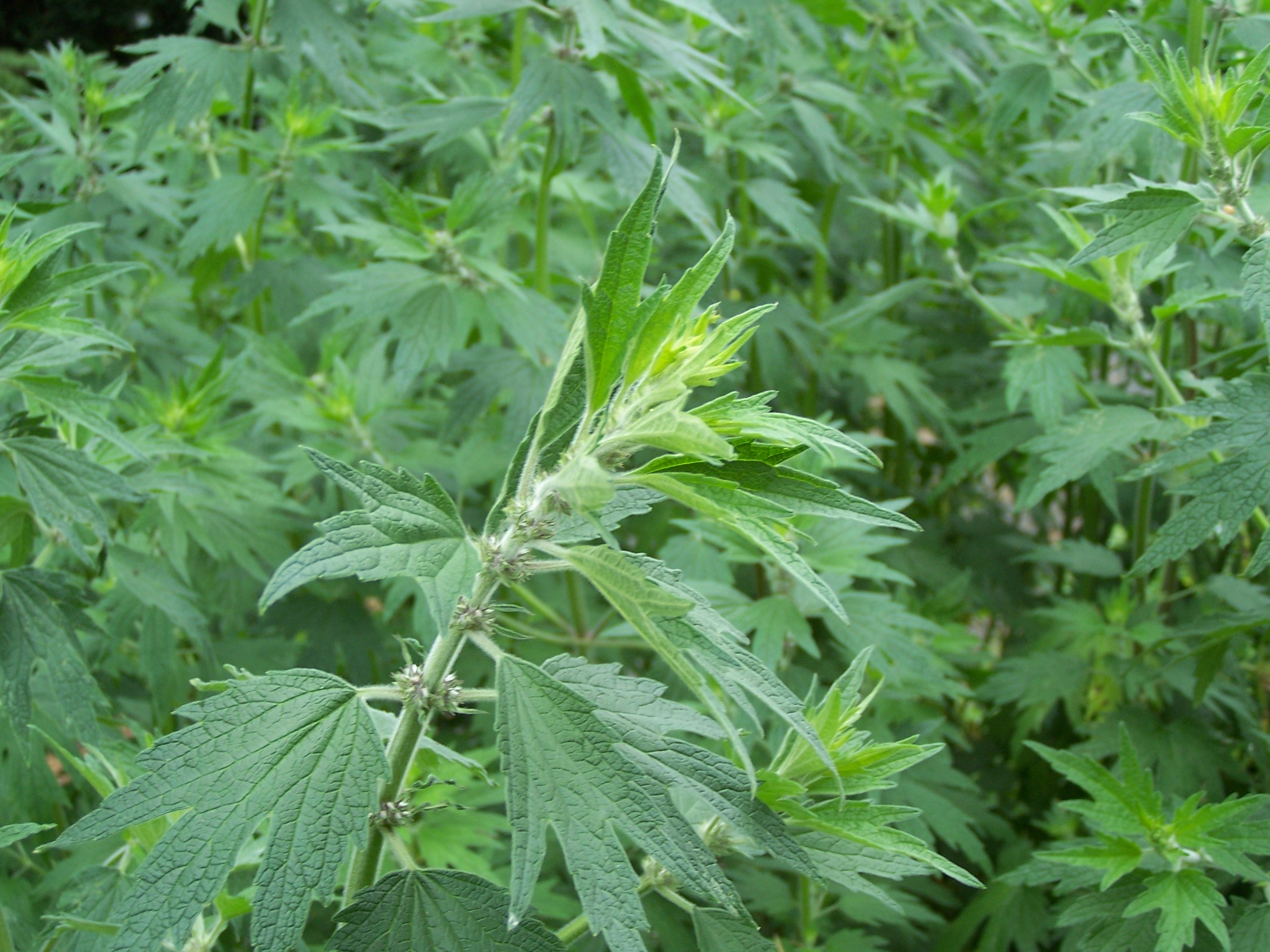- Motherwort
Taxobox
name = "Leonurus cardiaca"

image_width = 240px
regnum =Plant ae
divisio = Magnoliophyta
classis =Magnoliopsida
ordo =Lamiales
familia =Lamiaceae
genus = "Leonurus "
species = "L. cardiaca"
binomial = "Leonurus cardiaca"
binomial_authority = L.Motherwort ("Leonurus cardiaca") is a flowering plant in the family
Lamiaceae . Other common names include "Throw-wort", "Lion's Ear", and "Lion's Tail". The latter two are also common names forLeonotis leonurus . Originally fromCentral Asia it is now found worldwide, spread largely due to its use as a herbal remedy."L. cardiaca", a member of the mint family, has a square stem and opposite leaves. The basal leaves are wedge shaped with 3 points while the upper leaves are more latticed. Flowers appear in leaf axils on the upper part of the plant and it blooms between June - August. The flowers are small, pink to lilac in colour often with furry lower lips. The plant grows to about 60-100 cm in height. It can be found along roadsides and in vacant fields and other waste areas.
Medicinal uses
Motherwort has a long history of medicinal use. The plant and its use as a medicinal herb originated in Central Europe and Asia, although it has long been in use in the North America as well. It is very useful for a variety of ills, and is very nourishing, much like stinging nettle or dandelion. The herb contains the
alkaloid leonurine , which is a mildvasodilator and has a relaxing effect onsmooth muscle s. For this reason, it has long been used as a cardiactonic , nervine, and anemmenagogue .Among other biochemical constituents, it also contains bitter
iridoid glycoside s,diterpinoid s,flavonoid s (includingrutin andquercetin ),tannin s, volatile oils, andvitamin A . Midwives use it for a variety of purposes, including uterine tonic and prevention of uterine infection.Susun Weed recommends it for combating stress and promoting relaxation duringpregnancy , also claiming that, given during labor, it preventshemorrhage .Michael Tierra , on the other hand, contraindicates it for internal use during pregnancy, claiming that it has the tendency to cause bleeding and may induce miscarriage. It was historically used inChina to prevent pregnancy and to regulate menstruation. Motherwort is also used to easestomach gas andcramp ing, menopausal problems, andinsomnia , although Susun Weed warns it may be habit forming if used regularly to combat sleeplessness. According to Tierra, thetraditional Chinese medicine energy and flavors are bitter, spicy, and slightly cold, and the systems affected are thepericardium andliver . The fresh or dried leaves (which are called "yìmǔcǎo", ) are used, and the recommended dosage is the standard infusion of oneounce herb to one pint boiling water or 10-30 drops of tincture three times daily.Images
References
*
* Lust, John "The Herb Book" (1974) New York, New York: Bantam.
* Moore, Michael "Medicinal Plants of the Mountain West" (1979) Santa Fe, New Mexico: The Museum of New Mexico Press
* Tierra, Michael "The Way of Herbs" (1980) New York, New York: Pocket Books.
* Weed, Susun S. "Wise Woman Herbal for the Childbearing Year" (1986) Woodstock, New York.
Wikimedia Foundation. 2010.
